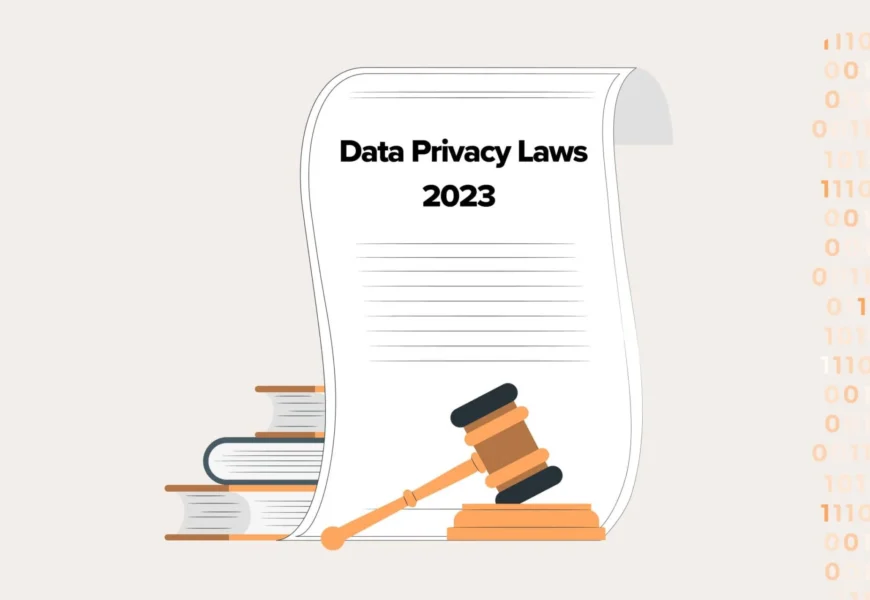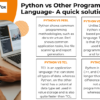In today’s digital age, where data is generated and shared at an unprecedented rate, data protection and privacy have become paramount. Governments and regulatory bodies worldwide have recognized the need to safeguard individuals’ personal information and have implemented stringent data privacy laws. In this blog post, we will explore the key aspects of Data Protection and Privacy Laws that you need to know in 2023.
Data Protection and Privacy Laws : A Brief About
Therefore, data protection and privacy laws actively regulate the collection, storage, processing, and sharing of personal data. Moreover, these laws actively aim to ensure that organizations respect individuals’ privacy rights and handle their personal information responsibly. Additionally, in 2023, several countries enacted or updated their data privacy laws to address the evolving digital landscape and strengthen data protection.
The General Data Protection Regulation (GDPR)
- Key Principles of the GDPR
The GDPR is built on a set of fundamental principles that organizations must adhere to when handling personal data. These principles include lawfulness, fairness, and transparency; purpose limitation; data minimization; accuracy; storage limitation; integrity and confidentiality; and accountability.
- Individual Rights under the GDPR
The GDPR grants individuals several rights regarding their personal data. These rights include the right to access their data, the right to rectification, the right to erasure (also known as the right to be forgotten), the right to restrict processing, the right to data portability, and the right to object to processing.
- California Consumer Privacy Act (CCPA)
Key Provisions of the CCPA
The CCPA gives California residents certain rights over their personal information and imposes obligations on businesses that collect and process such data. Additionally, it requires businesses to disclose the categories of data collected, the purposes of the processing, and the third parties with whom the data is shared. It also gives individuals the right to opt out of the sale of their personal information.
Expansion of Privacy Laws in the United States
Inspired by the CCPA, other states in the U.S. have started enacting their own privacy laws. For example, Virginia’s Consumer Data Protection Act (CDPA) and Colorado’s Privacy Act introduce similar requirements and rights for residents of those states.
- Brazil’s General Data Protection Law (LGPD)
The LGPD and Individual Rights
The LGPD empowers Brazilian citizens with rights over their personal data, including access, correction, deletion, portability, and the right to information about data processing activities. It also requires organizations to obtain valid consent for data processing and to adopt security measures to protect personal data.
The LGPD’s Impact on Businesses
The LGPD applies to any organization that processes personal data in Brazil, regardless of its location. This means that companies outside Brazil must also comply with the law if they process the data of Brazilian residents.
China’s Personal Information Protection Law (PIPL)
Strengthening Personal Data Protection in China
China’s PIPL aims to enhance the protection of personal data within the country. Additionally, it introduces requirements for obtaining consent, setting up data protection measures, conducting impact assessments for high-risk processing activities, and appointing data protection officers.
2. Implications for Businesses Operating in China
The PIPL applies to both domestic and foreign organizations that process personal information in China. It emphasizes the importance of obtaining consent and imposes severe penalties for non-compliance, including fines and potential suspension of business operations.
Ensuring Compliance with Data Privacy Laws
- Conducting Privacy Impact Assessments (PIAs)
Organizations should conduct Privacy Impact Assessments (PIAs) to identify and mitigate privacy risks associated with their data processing activities. Moreover, PIAs help assess the necessity, proportionality, and legality of data processing, and furthermore, they assist in implementing appropriate safeguards.
- Implementing Privacy by Design and Default
Privacy by Design and Default is a principle that encourages organizations. To embed privacy and data protection measures into their products, services, and business processes from the outset. Additionally, this approach ensures that privacy is considered at every stage and minimizes the risk of privacy breaches.
- Establishing Data Governance Frameworks
Data governance frameworks provide a structured approach to managing and protecting data throughout its lifecycle. These frameworks include policies, procedures, and controls that address data collection, storage, access, sharing, and disposal while ensuring compliance with relevant data privacy laws.
The Importance of Compliance
Complying with data protection and privacy laws is crucial for organizations. Moreover, failing to meet the requirements can result in severe consequences, including legal actions, financial penalties, and damage to reputation. Therefore, it is essential for businesses to conduct privacy impact assessments, and implement data protection. It measures and establishes robust data governance frameworks to ensure compliance with the applicable laws.
Emerging Trends in Data Privacy
In 2023, several emerging trends are shaping the landscape of data privacy. These include:
- Stricter Consent Requirements: Data privacy laws are placing greater emphasis on obtaining informed and explicit consent from individuals for data processing activities.
- Enhanced Rights for Individuals: Privacy laws are enhancing rights for individuals, granting them the right to data portability and, as a result, the right to be forgotten. These rights enable individuals to have more control over their personal information.
- Increased Cross-Border Data Transfers: As global data flows continue to grow, regulatory frameworks are evolving to address cross-border data transfers while ensuring adequate protection for personal data.
Focus on Artificial Intelligence (AI) and Machine Learning (ML): With the rise of AI and ML technologies, there is a growing need to address the ethical and privacy implications associated with automated decision-making and algorithmic transparency.
Also Read: Grab Fantastic Christmas Deals: 15 Sites Offering 60% Off on All Assignment Help
Conclusion
Data protection and privacy laws have become critical considerations for organizations worldwide. In 2023, staying informed about the evolving legal landscape surrounding data privacy is essential. Moreover, familiarizing yourself with key regulations like the GDPR, CCPA, LGPD, and PIPL is crucial. By adopting robust data protection measures, you can ensure compliance and build trust with your customers. By prioritizing data privacy, organizations can navigate the digital landscape while respecting individuals’ rights and safeguarding their personal information.








